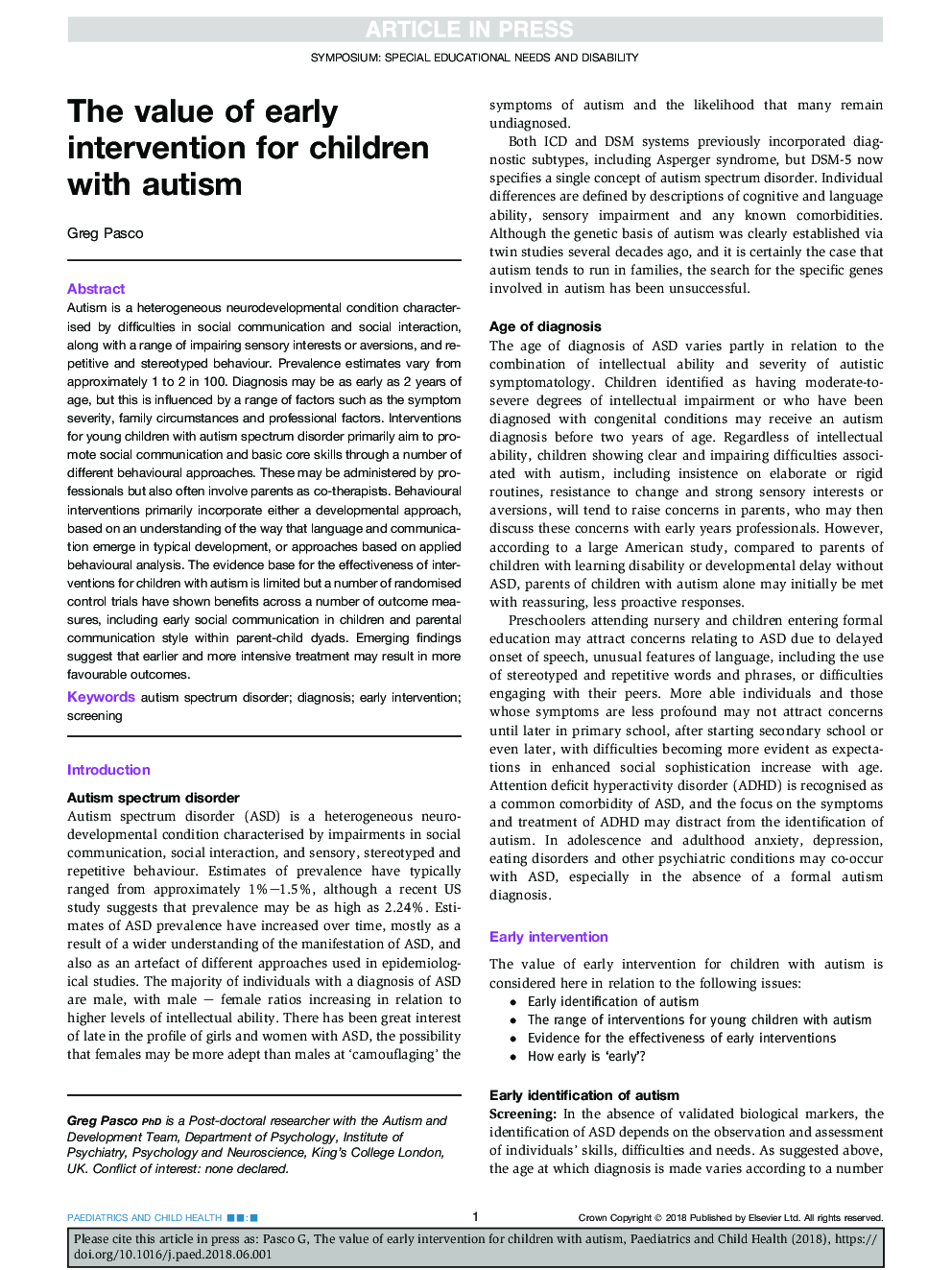| Article ID | Journal | Published Year | Pages | File Type |
|---|---|---|---|---|
| 8813062 | Paediatrics and Child Health | 2018 | 4 Pages |
Abstract
Autism is a heterogeneous neurodevelopmental condition characterised by difficulties in social communication and social interaction, along with a range of impairing sensory interests or aversions, and repetitive and stereotyped behaviour. Prevalence estimates vary from approximately 1 to 2 in 100. Diagnosis may be as early as 2 years of age, but this is influenced by a range of factors such as the symptom severity, family circumstances and professional factors. Interventions for young children with autism spectrum disorder primarily aim to promote social communication and basic core skills through a number of different behavioural approaches. These may be administered by professionals but also often involve parents as co-therapists. Behavioural interventions primarily incorporate either a developmental approach, based on an understanding of the way that language and communication emerge in typical development, or approaches based on applied behavioural analysis. The evidence base for the effectiveness of interventions for children with autism is limited but a number of randomised control trials have shown benefits across a number of outcome measures, including early social communication in children and parental communication style within parent-child dyads. Emerging findings suggest that earlier and more intensive treatment may result in more favourable outcomes.
Related Topics
Health Sciences
Medicine and Dentistry
Perinatology, Pediatrics and Child Health
Authors
Greg Pasco,
